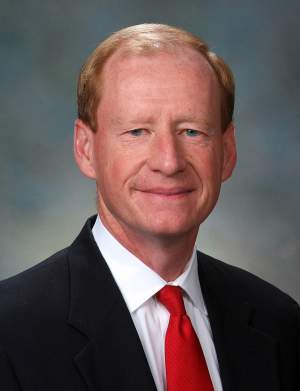
Mechanical and plumbing system deficiencies and failures cause property damage, injuries, and fatalities. I provide forensic investigations to determine the root cause of failures and testify as an expert witness in litigation cases so that disputes are resolved based on sound engineering analysis.
For over 15 years, I have provided forensic investigations, expert witness services, and litigation support for cases involving HVAC design, plumbing design, pipe failures, plumbing component failures, sprinkler system failures, hot water scalding, water heater failures, gas venting/carbon monoxide poisoning, gas furnaces, and legionella.
As the principal mechanical engineer at Griffith Engineering & Consulting for over 23 years, my training and experience in designing plumbing, HVAC, and fire sprinkler systems enables me to offer professional opinions regarding the adequacy of system design, construction, maintenance, and operation.
I provide investigative engineering, consulting, and expert witness services that are thorough, credible, and timely. I strive to perform independent analyses that are based on factual evidence and that use the proper application of engineering and scientific principles.
As a licensed professional engineer I can assist with investigations in the following areas:
Plumbing
- Plumbing design
- Plumbing code compliance
- Hot water systems/scalding
- Legionella
- Fuel gas fires and explosions
- Failure Analysis
HVAC
- HVAC design
- Gas appliance venting
- Carbon monoxide poisoning
- Failure analysis – mechanical equipment
Fire Sprinkler Systems
- Sprinkler system design
- Failure analysis – sprinkler system failures
I represent both plaintiffs and defendants and have provided both deposition and trial testimony.
Click here for my CV.
Professional Affiliations
- American Society of Heating, Refrigeration, and Air Conditioning Engineers (ASHRAE)
- American Society of Mechanical Engineers (ASME)
- American Society of Plumbing Engineers (ASPE)
- American Society of Sanitary Engineers (ASSE)
- American Society of Testing and Materials (ASTM)
- International Code Council (ICC)
- National Academy of Forensic Engineers (NAFE)
- National Fire Protection Association (NFPA)
- National Society of Professional Engineers (NSPE)
Codes and Standards
I serve on the following code and standards committees:
ASPE Technical Standard 15 – Hot Water Temperature and Control (member). This is a design standards committee that provides industry guidelines for hot water temperature limits and control for plumbing systems to prevent scalding
ASSE Scald Awareness Task Group (member). The task group was formed to make the general public and plumbing community more aware of potential scald issues relative to plumbing systems. The task group has published the following white papers during my membership:
- Adjustment of Automatic Compensating Valves to Prevent Potential Scald Hazards
- Guidelines for Temperature Control Devices in Domestic Hot Water Systems
- Recommended Installation Practices for Residential Storage Type Water Heaters To Reduce the Danger of Scalds
- Recommended Installation Practices for Residential Tankless Water Heaters to Reduce the Danger of Scalding
ASSE 1082 Working Group, member; (2016-2020). The Working Group developed a standard for Tankless Water Heaters Used as Temperature Control Devices for Hot Water Distribution Systems.
ASSE 1084 Working Group, member; (2017-2020). The Working Group developed a standard for Tankless Water Heaters Used as Temperature Control Devices for Point-of-Use Applications.
ASSE 1085 Working Group, member; (2017-2020). The Working Group developed a standard for Tankless Water Heaters Used as Temperature Control Devices for Emergency Fixtures.
IAPMO Technical Committee for Construction Practices for Potable Water Guideline Task Group (2022-present) This standard will guide contractors and subcontractors in installing and managing premise plumbing systems to minimize the risk of Legionella and other water-borne pathogens.
IAPMO UMC Legionella Task Group (2020-2021) This task group developed an Appendix H for the Uniform Mechanical Code that guides the selection of water temperatures to minimize Legionella growth potential associated with building mechanical systems.
IAPMO UPC Legionella Task Group (2018-2019) This task group developed Appendix N for the Uniform Plumbing Code that guides the selection of water temperatures to minimize scalding and the potential for Legionella growth.
ICC, Plumbing Mechanical Gas Code Action Committee (PMGCAC) member; (2017-2019). The PMGCAC reviews and proposes revisions to the International Plumbing, Mechanical, Fuel Gas, Private Sewage Disposal, and Swimming Pool and Spa Codes, and the International Residential Code, chapters 12 through 33.
NFPA 54: National Fuel Gas Code, Technical Committee; (member; 2016). The committee has primary responsibility for changes and updates to the code, which covers the installation and operation of fuel gas piping systems, appliances, equipment, and related accessories, with rules for piping systems materials and components, piping system testing and purging, combustion and ventilation air supply, and venting of gas-fired appliances and equipment.
Professional Registrations and Certifications
Registered/Licensed Professional Engineer in 24 states: Alabama, Arizona, Arkansas, Colorado, Florida, Georgia, Illinois, Indiana, Iowa, Kentucky, Louisiana, Maryland, Minnesota, Mississippi, Missouri, New York, North Carolina, Ohio, Oklahoma, South Carolina, Tennessee, Texas, Utah, and Virginia.
Board Certified in Forensic Engineering by the National Academy of Forensic Engineers (NAFE). The program is accredited by the Council of Engineering and Scientific Specialty Boards.
Certified Legionella Water Safety and Management Specialist, ASSE 12080 Certification Number: 46687
Education
Bachelor of Science, Mechanical Engineering, Tennessee Technological University, Magna Cum Laude, Cookeville, Tennessee – 1983.
Feel free to contact me for additional information.